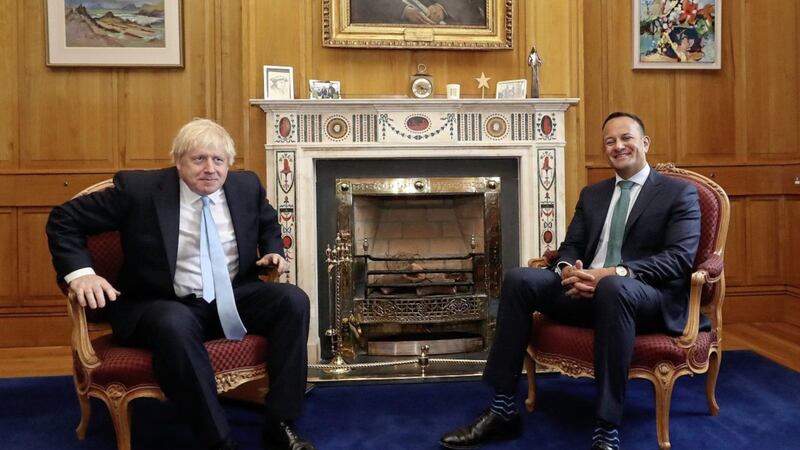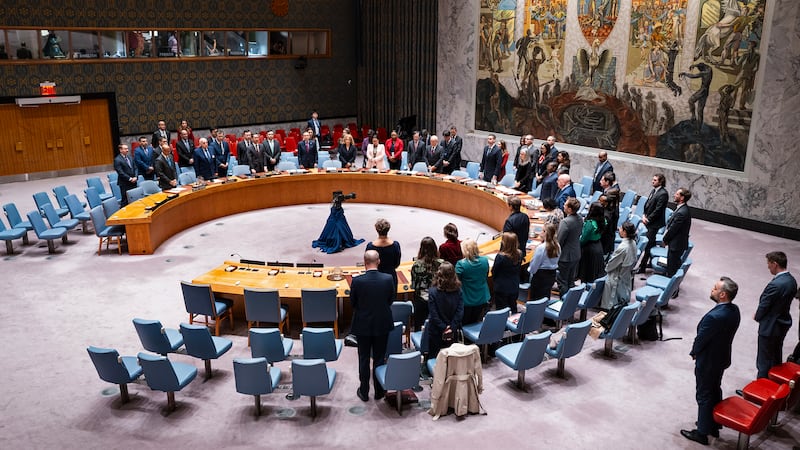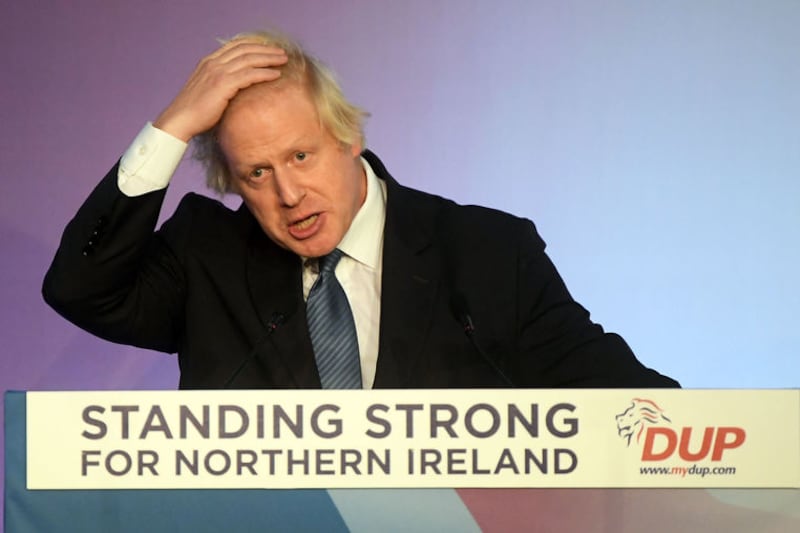SPECULATION is mounting that the British government could return to the idea of a Northern Ireland-only backstop to resolve the Brexit impasse.
Speaking during his visit to Dublin yesterday, Prime Minister Boris Johnson said while he did not want the UK to be "kept locked" in a backstop, he again raised the possibility that food and agricultural products could be dealt with on an Ireland-wide basis.
Such a proposal would see Northern Ireland following European Union rules while Britain potentially diverged.
Mr Johnson, who has previously branded a backstop "anti-democratic" because Northern Ireland would not have a say in EU rule-making, said he had an "abundance of proposals" to break the Brexit deadlock but it would not be "reasonable" to share them.
The backstop is an insurance policy to avoid a hard border and would see Northern Ireland or the whole of the UK retain a close relationship with the European Union until alternative arrangements are agreed.
The EU has insisted that any Brexit deal must contain the backstop but it has been opposed by many MPs and would not apply in the event of a no-deal exit on October 31.
Mr Varadkar said yesterday while the Irish government was committed to the backstop it was also willing to accept alternatives "but we haven’t received such proposals to date".
"But what we will not do is agree to the replacement of a legal guarantee with a promise."
Brexit Party leader Nigel Farage claimed Mr Johnson was moving towards a withdrawal agreement similar to the one negotiated by former Prime Minister Theresa May.
"The Boris bravado has disappeared in Dublin, saying no deal would be a 'failure of statecraft'," he tweeted.
"He is now going all out for Mrs May's 'deal', with Northern Ireland to be hived off from the rest of the UK. A clean break Brexit is the only way forward."
In November 2018, Mrs May said her cabinet had finally backed a deal between UK-EU negotiators that included agreement on a backstop.
Despite rejecting the deal, including during a speech to the DUP annual conference last year, Mr Johnson changed his position and voted for the withdrawal agreement in March.
DUP leader Arlene Foster said yesterday she has been "encouraged" by Mr Johnson's commitment to getting "a sensible deal".
She said the prime minister had "already ruled out a Northern Ireland-only backstop because it would be anti-democratic, unconstitutional and would mean our core industries would be subject to EU rules without any means of changing them".
However, some commentators have noted that with the sacking of 21 rebel Tory MPs and the loss of a Commons majority, Mr Johnson is no longer as reliant on his DUP allies and is more likely to agree to what has been described by unionists as a border along the Irish Sea.
Writing for the influential Spectator website, former political editor James Kirkup said polls have shown Leave voters do not care about Northern Ireland.
"This is my speculation, of course, but will people happy to countenance a return to terrorist conflict to get Brexit, kick-up that much of a fuss if Brexit requires only the creation of a notional regulatory border in the Irish sea?" he wrote.
Fianna Fáil leader Micheál Martin yesterday said the Irish government should look closely at a Northern Ireland-only backstop.
"We have always felt there should've been a special economic zone for Northern Ireland, adamant that it would not undermine the institutions underpinned in the Good Friday Agreement," he said.
"Unionism seemed to very early on turn against the idea.
"If enough guarantees can be given there to ensure the constitutional framework of the Good Friday Agreement prevails, in the context of a Northern Ireland-specific arrangement, there may be potential for an exit agreement to be arrived at.
"I think we all have to be open to that possibility.
"Deep down, I feel unionism knows that no-deal will be ruinous for Northern Ireland."







